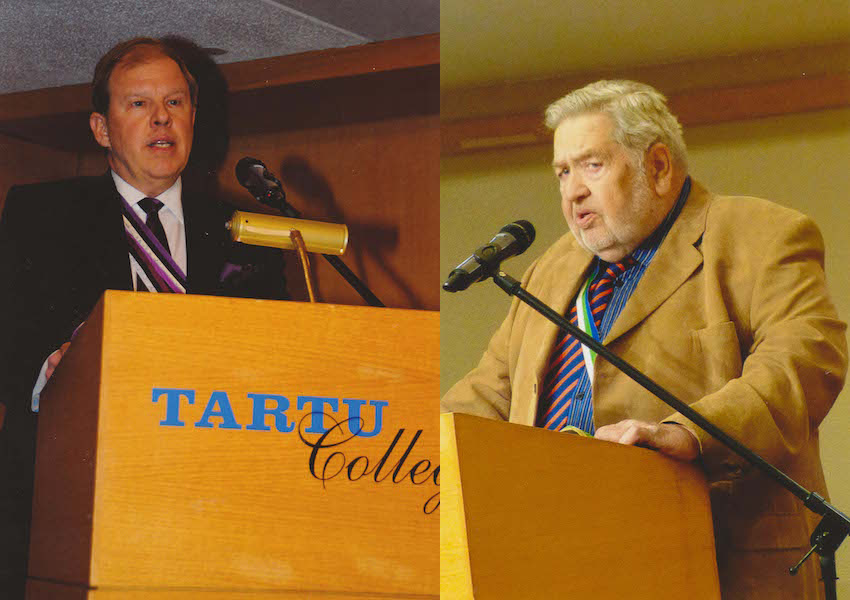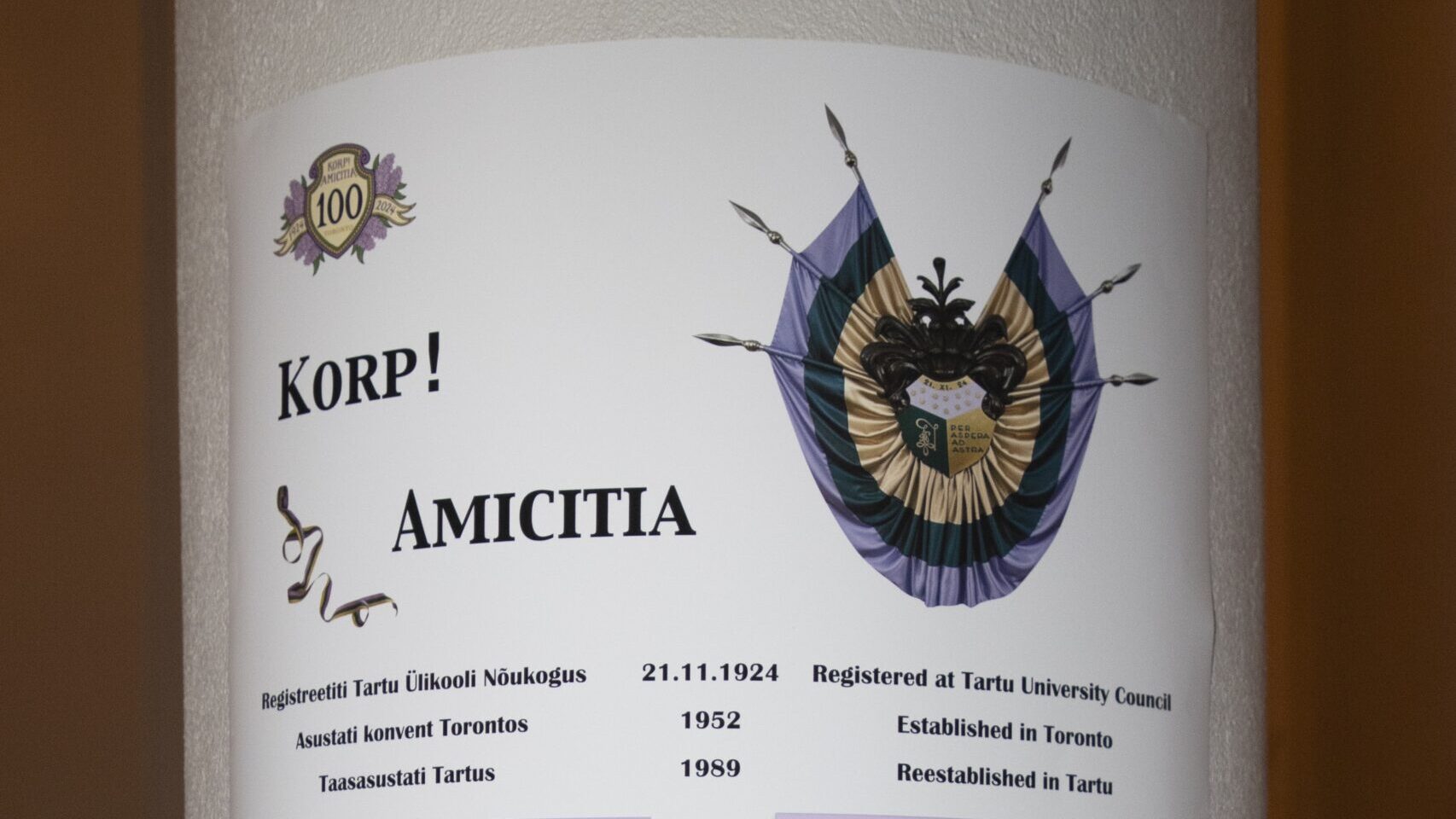The responsibility for planning and staging this year's ceremonial event rested on the shoulders of the current year's presiding organization Fraternitas Estica, whereas other fraternities represented were Vironia, Sakala, Ugala, Rotalia, Fraternitas Liviensis, Revelia and Fraternitas Tartuensis. (In Estonian the names of the organizations are frequently written as follows: korp! Frat. Estica).
Since a detailed description of the particular event, including names of leading participants, was provided in last week's Eesti Elu, please allow me to share some ideas of a more general nature that I consider significant to this story.
The Estonian fraternities are very different from the generally secretive organizations existing in North America and the rest of the world. Rather than separating themselves from the community, the Estonian frats help sustain it. The primary founder of Tartu College, home of Estonian academic life in Toronto, Elmar Tampõld, saw them as a continuation of the cultural education that young people receive as part of Estonian life abroad starting with kindergarten and continuation schools which help maintain linguistic and historical awareness. This continuation process includes student choirs, church groups, summer camps and the far-reaching scouting movement.
I consider it essential to mention that outside the fraternities, parallel women's organizations and a dominant fraternal society (EÜS) are very much part of this constructive development in Estonian society. Any criticism of ethnic snobbery or exclusivity is easily countered by the solid standard of English language used by generations of Estonians mostly born in Canada long after the primary influx following the Second World War. Many fluent Estonian speakers are actually teachers of English, some at college level. One might call it bi-lingualism, both spoken and written, of a high order.
Because of colonial oppression throughout Estonian history, university education has been considered as a means to acquire, develep and maintain intellectual freedom. As a result, the word ,,academic” has a special connotation in Estonian activity. In spite of their social nature, the fraternities in the League (EKL) as well as sororities and societies (men's and women's), are called academic organizations and are seen as supportive of local communities.
Since the fraternities, sororities, fraternal societies, etc. in Eesti (Estonia), illegal during the culturally genocidal communist regime, began their re-activation in the country of their origin already in 1989 and 1990, one can imagine the dynamic global interaction between the older long-standing exile groups and members of the youthful renaissance since that time. In Eesti, the League of Fraternities is celebrating the same historic event – as their brothers in Canada two weeks ago – at the time of appearance of this issue of Eesti Elu and Estonian Life.
Andres Raudsepp




